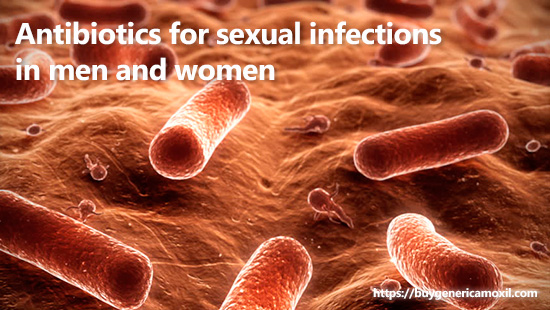Antibacterial agents for sexual infections should always be used, since these drugs help to eliminate harmful bacteria. It should be remembered that not all sexually transmitted diseases are transmitted only sexually, but all of them require immediate antibiotic treatment. What antibiotics are used for sexual infections?
Risk of sexually transmitted diseases
Sexually transmitted diseases are usually transmitted through intimacy. Dangerous types of contact are considered to be:
- vaginal;
- oral;
- anal.
Diseases can be the following:
- Viral disease of the mucous membrane of the intimate organs, which is characterized by the appearance of bubbles, erosions and ulcers.
- Clamidiosis.
- Gonorrhea (an infectious disease caused by gram — negative diplococcus – gonococcus).
- Bacterial vaginosis (an infectious process characterized by a decrease or absence of immunostimulating symbiotic bacterial substances).
- Syphilis (a serious disease characterized by damage to the skin, mucous membranes and internal organs of a person).
- AIDS.
- Inflammatory liver diseases are usually of viral origin.
- Trichomoniasis (an invasive disease of the human genitourinary system).
- Soft chancre (venereal ulcer).
- Mycoplasmosis (a chronic disease that is caused by small bacteria that parasitize the human body – mycoplasmas).
Anyone can get infected. To get sick, it is not necessary to carry out the very fact of intimate contact. Sexually transmitted diseases such as herpes can be transmitted through physical touch. Today, approximately one in seven people on the planet is a carrier of venereal infections. Later we will answer the question: “what antibiotics are available for genital infections?”.
Teenagers and young people between the ages of fifteen and twenty-four are particularly affected, as this part of the population is the most active and careless when choosing a sexual partner.
Even sexually transmitted diseases that are curable in the modern world are considered very dangerous if they are not treated in time. For example, gonorrhea that is not cured in time creates difficulties in conception, as well as provokes a fatal outcome of pregnancy and infertility. In representatives of the strong half of humanity, advanced gonorrhea is the cause of inflammation of the prostate and urethra.
Hepatitis B and C provoke severe liver diseases, which in most cases remain in people for the rest of their lives. The papilloma virus is a source of cancer. Pathogens of sexually transmitted diseases suppress the immune system, increase the likelihood of infection with the human immunodeficiency virus.

What are the symptoms can be determine the disease?
All diseases are different, each has a number of specific signs. You can get accurate information by passing diagnostics in the laboratory. But there are several specific signs that are present in any sexually transmitted infection, for example:
- heavy discharge from the intimate organs;
- severe irritation and burning in the genital area and sphincter;
- pain when urinating, especially in the morning;
- rash in the genital area;
- increased body temperature;
- enlarged lymph nodes;
- pulling pain in the lower abdomen.
With oral infection, acute tonsillitis may occur (the disease manifests itself against the background of syphilis, mycoplasmosis, and thrush) and stomatitis (appears with gonorrhea). Anal contact with an infected partner leads to irritation, burning in the rectum, as well as the formation of exudative fluid when the intestines are released.
Sexually transmitted diseases have always been shameful ailments, which is why most people are embarrassed to visit a doctor on time and treat themselves. Having awareness of the severity of the disease, any person who values their health and the well-being of their loved ones is obliged to contact a medical specialist, namely a venereologist, at the first symptoms of sexual infection. So which antibiotics are most commonly used for sexual infections? Amoxil is one of the most effective, inexpensive and popular drugs.
Broad-spectrum antibiotics for sexual infections
Most sources that cause infection of the genitals have a bacterial etiology, so it is correct that their elimination is carried out with antibacterial drugs. One of the serious problems of antibiotic therapy is considered to be the immunity of pathogens. Scientists are inventing more and more new types of antibacterial agents to effectively fight unpleasant diseases. Currently, there are about two hundred types of antibiotics, each of which has dozens of substitute drugs.